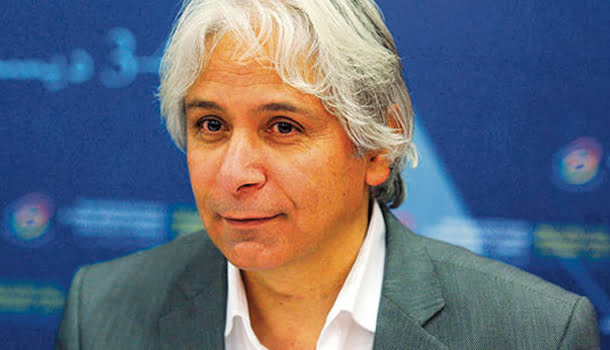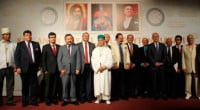Post-Kemalist but still illiberal Turkey

Date posted: December 15, 2013
İHSAN DAĞI
Many, including myself, expected that the defeat of Kemalism by a broad coalition of liberals, democrats and conservatives under the political leadership of the Justice and Development Party (AK Party) would lead to a democratic regime in Turkey with a liberal constitution.
The post-Kemalist state is disillusionment because it has not evolved into a democratic one. Yes, Kemalism is dead but its state-centric, Jacobin and illiberal sprit has been reincarnated in the ruling AK Party. The similarities in the attitude and the policies of the AK Party and its Kemalist predecessors are striking. Using the state apparatus to construct a “a new society and citizen,” trying to subordinate individuals and civil society to the state, employing the state’s coercive means to punish its opponents, viewing the world from the perspective of a siege mentality and describing the world as plotting against it are common both to the AK Party and its old rivals, the Kemalists.
Thus, the post-Kemalist Turkey is still not a liberal democracy because the Kemalist heritage has been passed on to the AK Party rule. Yes, the military and the judiciary have been stripped of the undemocratic power that they used to enjoy in the name of Kemalism. This could have been a very good start for building a full-fledged democracy with the principles of human rights, the rule of law and fundamental freedoms. Yet a new regime has been established, a mirror image of the old one, in which all power is monopolized by a single person.
What we have at the end, therefore, is not a liberal democracy but a populist authoritarian regime that justifies its illiberal intrusions and interferences in the economy, in society and with individual rights by references to the vague notions of national will, values of “our nation and civilization” and “our historical mission.”
When these references fall short, the government does not hesitate to resort to conspiracy theories that link dissenting views and opposition protests to the “external enemies of Turkey” in order to delegitimize and discredit its opponents. Any opposition is portrayed as a plot to bring down the government; each opposition movement and any dissenting voices are accused of collaborating with the enemies of Turkey. The logical and natural outcome of this trend will be criminalizing the opposition.
In order to keep the party grassroots mobilized, irrelevant analogies are constantly made between Prime Minister Recep Tayyip Erdoğan and former Egyptian President Mohammed Morsi, and coups in Turkey’s past and the recent coup in Egypt. Most recently the execution of senior Jamaat-e-Islami party leader Abdul Qader Molla in Bangladesh is cited to this end. These analogies not only spread fear and a deep sense of insecurity, and thus the need for unity behind the party and the leader but also pave the way for authoritarian measures against actual and potential sources of opposition.
Especially since the Gezi protests, the ruling party regards politics as a matter of “survival,” securitizing the process, actors and the language of political competition that increase the risk of provocations in the run-up to local and presidential elections in 2014. We know from our Kemalist past that through securitizing politics comes justification for authoritarian policies. Therefore, it is not surprising now that the prime minister constantly talks of “internal enemies,” and the deputy prime minister threatens journalists, saying they “should be prepared to spend four to five years in jail” if they want to be “heroes.”
The government wants so much to be free of the mechanisms of checks and balances that even the presence of civil society is now viewed as a threat. It is trying to coerce the Hizmet movement to submit to the party and the state. Civil society, as in the old Kemalist days, should belong to the realm of the state, rather than playing a role of interacting between society and state. It seems that the ruling party and its Islamist allies are relying on the coercive and distributive power of the state to force civil society to be subordinate to the state and the party.
In terms of its ideology and leadership, this is a post-Kemalist state, but it is one that maintains its authoritarian characteristics.
Source: Today's Zaman , December 15, 2013
























